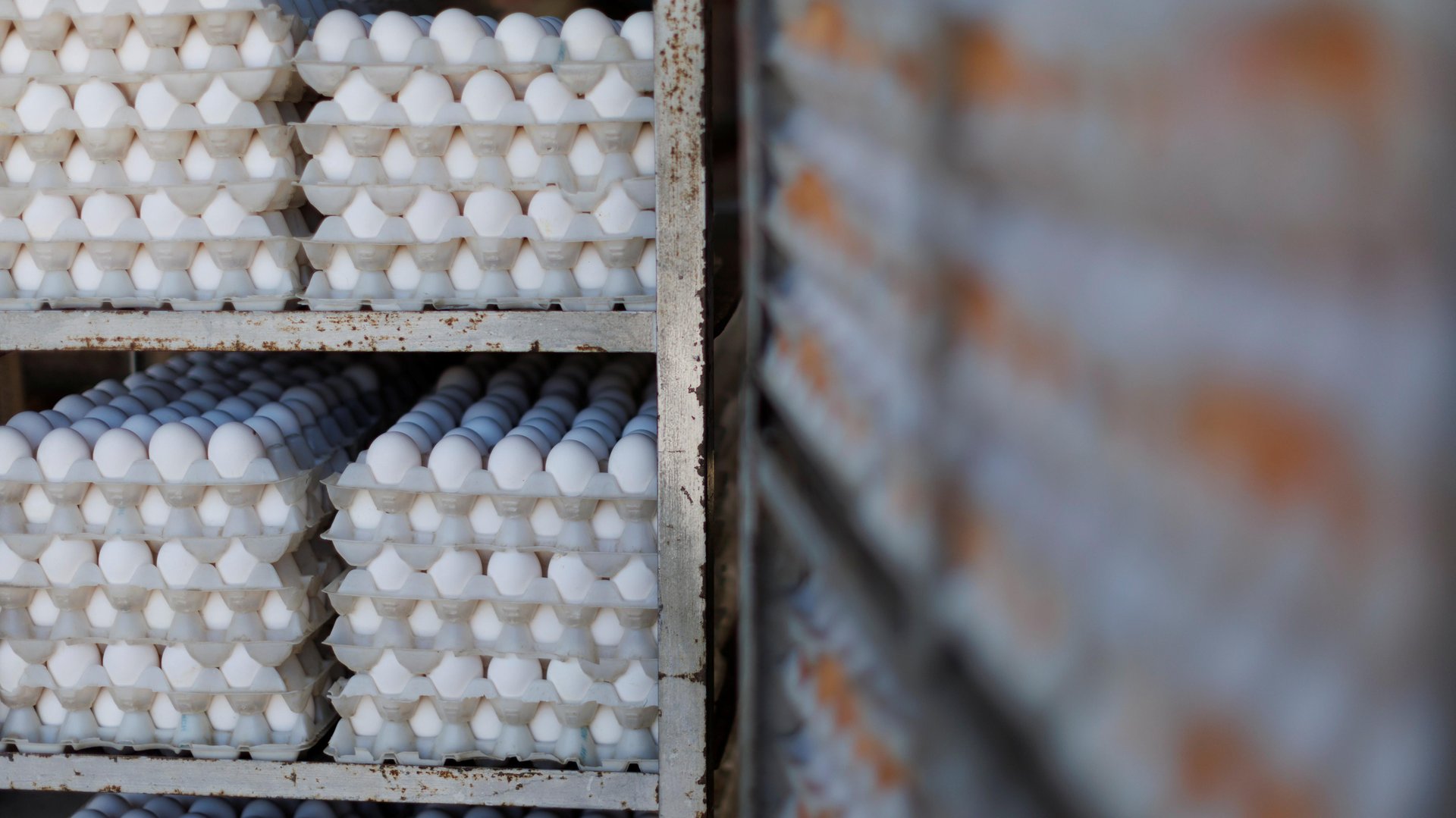Here's why a BlackRock portfolio manager says you should buy chickens
Once an affordable grocery staple, eggs are now a valuable commodity.

Faced with volatile markets, investors are always seeking alternatives to stocks and bonds to hedge their bets.
In a recent Bloomberg piece, which asked seasoned money managers how best to invest $10,000 right now, Russ Koesterich, a portfolio manager at BlackRock, the world’s largest asset manager, proposed an unusual idea: chickens.
Buy chickens. Why chickens? Because while inflation has become an unwelcome reality across every category of goods, few commodities have risen as fast as eggs. During the past year, the price of eggs has increased by nearly 50%, the most of any grocery category. Even relative to other necessities, the rise in egg prices has been extreme. For example, energy, which at one point threatened to push the global economy into recession, is heading down. Oil and natural gas prices are both lower than a year ago. And while the rise in egg prices has been exacerbated by a particularly bad outbreak of avian flu, surging agricultural commodity prices are an important reminder of an immutable law of economics: Everyone needs to eat.
That chickens are part of a BlackRock money manager’s investment advice underscores just how valuable eggs are these days. Typically an affordable grocery staple, US egg prices in December surged 60% compared to this time last year. Eggs outpaced overall food prices — which were up 10.4% — by a hefty margin.
Why are egg prices so high?
Egg prices are high largely because of an ongoing epidemic of avian flu affecting most of the US and parts of Europe, forcing farmers to kill hundreds of thousands of chickens to contain the disease. The need to cull chickens at such a large scale has reduced supply, which has driven up the price of eggs. In the US alone, avian flu infected more than 10% of the country’s egg laying hens last year.
This is a big deal because for many Americans, indeed many people throughout the world, eggs are an essential part of the diet — a veritable superfood that is an important source of protein — and that has few, if any, comparable substitutes.
That means, even with high prices, demand won’t necessarily decrease. People will still eat eggs, and they will eat the higher prices too.
“The demand for eggs is not very sensitive to price changes,” said Wendong Zhang, an agricultural economist and assistant professor of applied economics and policy at Cornell University.
When will the price of eggs drop?
Zhang said it can take a producer about four to six months to rebuild their egg supply. “There’s no chance that we’ll see the very low price, [from] the early half of 2022, this year,” he said.
But there is hope in sight. Wholesale prices for a carton of eggs have started to come back down to reality, according to a Jan. 27 US Department of Agriculture report, but it will take time for those lower prices to reach the grocery store.
US future contracts for eggs are also no longer trading at its highs, signaling that some investors expect egg prices to fall. So if you are going to buy chickens, maybe do it quickly.
While you invest in chickens, add in the farm
If you do decide to start buying chickens, consider adding farmland to your investment portfolio. In recent years, farmland values have been going up and farmland tends to fare well during recessions. One estimate finds that, since 1991, investment in this type of land has yielded an average annual return of 10.74%, higher than equities or real estate during that same time period.
That also helps to explain why Bill Gates continues to buy up farmland.
